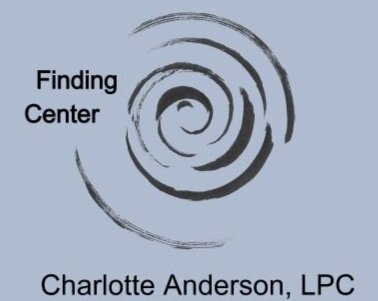Therapy Style and Techniques
No type of therapy is “one size fits all,” and successful therapy (where people end up feeling better about their life and stronger in themself), is a collaborative process grounded in the relationship between the therapist and the client. I have advanced training in all of the specific types of therapy listed below, and my practice draws on these differently with each client. My practice is customized and collaborative in order to meet the individual and unique needs of each person I’m working with.
Trauma-Informed Care
Trauma-Informed Care (TIC) is more of a worldview than a type of therapy, and it is part of my practice with each and every person I work with. TIC understands that we have all experienced real problems and traumas in our lives, and where we find ourselves now is connected to what we have been through. These experiences might have been specific events or more situational factors in our lives, but they have impacted who we are and what we do. Many behavioral and mental health problems can be re-framed as normal responses to things that happened to us, only those responses are now creating different problems in our lives.
Accelerated Resolution Therapy
Accelerated Resolution Therapy (ART) is a brain-based intervention that allows people to change their emotional and physical responses to stressful, painful, or traumatic situations. Using eye-movements and voluntary image replacement, ART changes the way distressing images and memories are stored in the brain, stopping them from triggering strong physical and emotional reactions. “Keep the knowledge, lose the pain.”
ART is designed to provide immediate relief from trauma, anxiety, phobias, depression, panic attacks, PTSD, performance anxiety, intrusive thoughts, codependency, grief, anger issues, and job-related stress.
ART is an evidence-based brief treatment, generally requiring fewer than 5 sessions for people with acute trauma. The therapy process is very straightforward and every session has a clear beginning, middle, and end. ART is also effective for treatment of complex trauma.
ART can be an ancillary treatment option if you already have a regular therapist.
More info about Accelerated Resolution Therapy here: https://acceleratedresolutiontherapy.com/
ART Ted Talk: https://youtu.be/vP7dx03arxI
Video “What is ART?” https://www.youtube.com/watch?v=hCVluIbsq7Q
ART discussed on a Podcast Dr. Diane Show with Andrew Matusiak Podcast
Cognitive Behavior Therapy
Cognitive Behavior Therapy (CBT) helps people identify how life events, thoughts, feelings, beliefs, and actions are interconnected and have created patterns in our lives and relationships. Understanding our patterns is the first step in changing them. CBT has been proven effective in treating depression and anxiety as it helps people build coping strategies and gain control over their emotions and their lives.
Dialectical Behavior Therapy
Dialectical Behavior Therapy (DBT) starts with the premise that we are all doing our best with the skills we have learned in life so far, and we may need new skills to manage the stressors we are currently facing. DBT has the same foundations as CBT (described above), and adds elements of mindfulness and skill building to cope with difficult emotions, improve relationships, manage crisis, and understand ourselves.
Family Therapy
Systemic approaches to Family Therapy: Understands how our actions and emotions are influenced by our closest relationships and external situations. Families often operate as a unit with moving parts; systems work looks at how those parts interconnect, support, and influence each other in order to promote positive change and growth in the whole family system.
Internal Family Systems
Internal Family Systems (IFS) is an evidence based treatment which helps to understand how we each have different “parts” working together to protect and guide us through challenging and traumatic experiences. Working with our “parts,” we can shift and change intense emotions and reactions, bringing a sense of cohesion and calm to the internal system.
Neurosequential Model of Therapeutics
The Neurosequential Model of Therapeutics (NMT) understands how traumatic experiences can effect the brain’s basic strategies, sometimes causing problems with relationships and trust or out-of-control behaviors. NMT does not focus on working through any specific trauma, it works to see how the brain was effected and what we can do to heal.
Trauma Focused CBT
Trauma-Focused CBT (TF-CBT) uses mindfulness and the foundations of CBT to work through specific traumatic experiences in a safe and controlled way. It has been proved to be effective with children and adolescents and often helps families re-connect after a traumatic experience.
Contact me now to schedule a free 15-minute consultation.
Charlotte.Anderson.LPC@gmail.com
text or call: 215-839-8709

